Hist & Theory of iArch & Arch III - Lessons 9+
1/33
There's no tags or description
Looks like no tags are added yet.
Name | Mastery | Learn | Test | Matching | Spaced | Call with Kai |
|---|
No analytics yet
Send a link to your students to track their progress
34 Terms
What is the new form of modern architecture, and what does it demand for?
A particular setting and the existing condition facing the new reality.
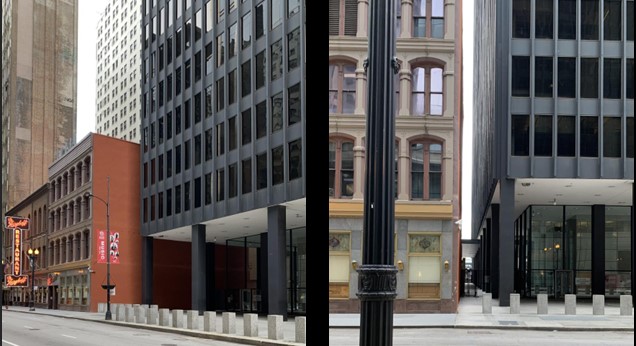
Describe the condition in your own words based on the provided images.
New construction vs existing, conflict with the height of the existing building that the new one does not recognize.
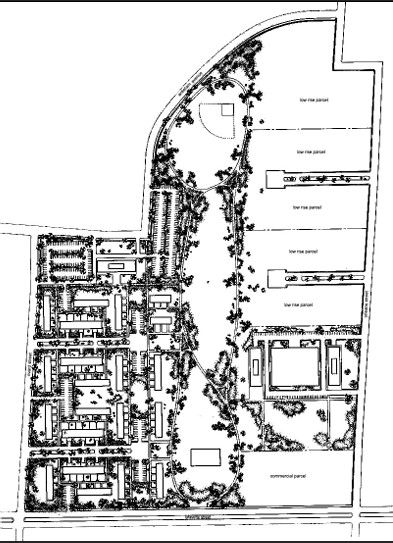
What structure is this, where is it located, and who designed it?
This is Lafayette Park located in Detroit, Michigan, and designed by Ludwig Mies Van der Rohe. The developer died in a plane crash, and the development was never completed on the northeast portion; it was later finished by other architects.
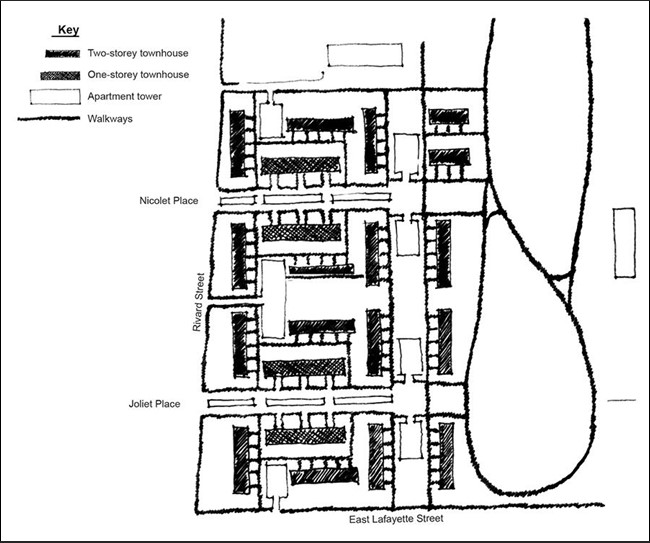
What is this a diagram of?
Streets and walkways in Lafayette Park.
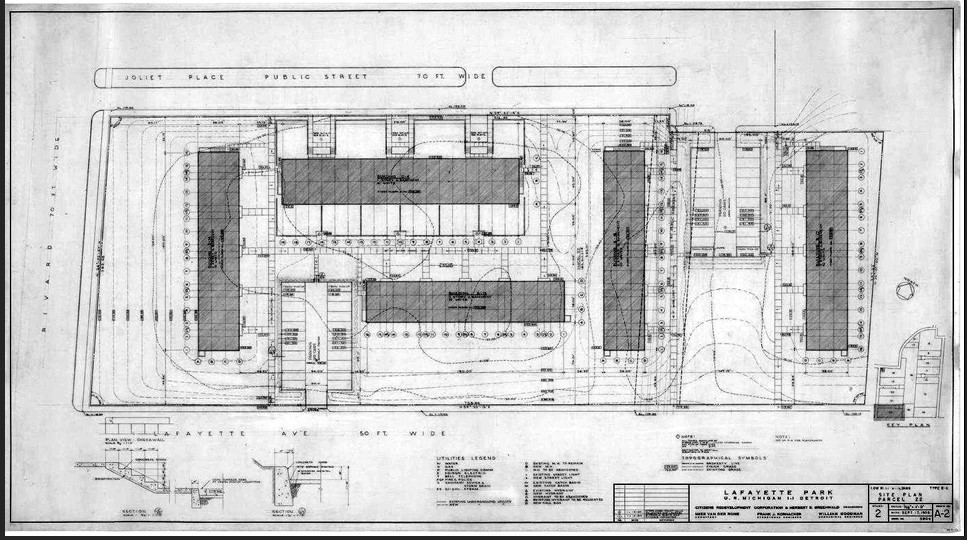
What is this a diagram of?
Topography and urban claims/development of Lafayette Park.
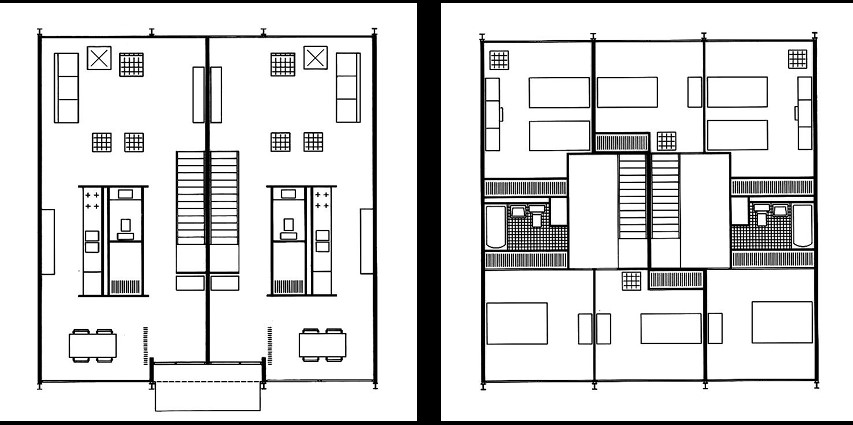
This depicts two apartments next to each other in a square-like fashion, with each being split down the middle. What’s significant about it?
The second section has translations of walls rather than being split down the middle. Important details are the mathematical order of the outside, the sharing of space, and the background/foreground relationship w/ the apartment being practically eye-level.
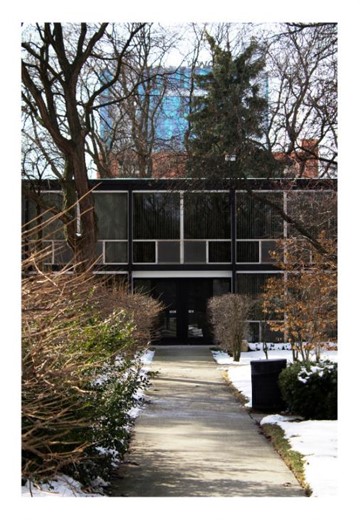
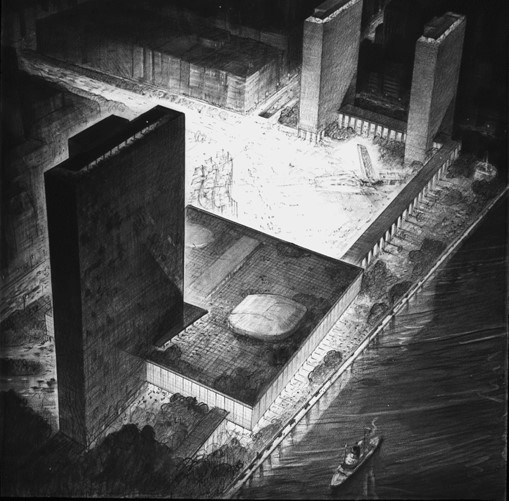
What does this image depict?
The towers from Lafayette Park. They were a new development belonging to the UN HQ in NY.
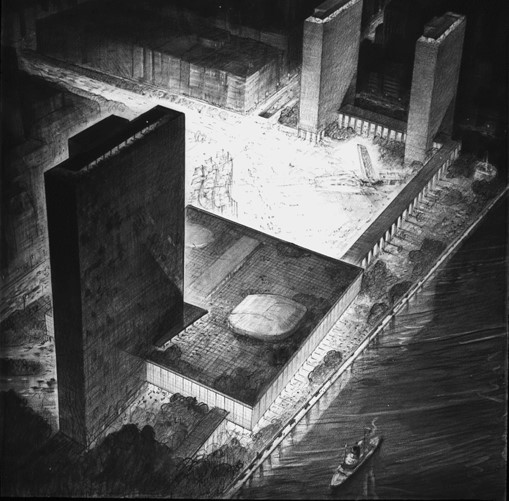
Who designed this scheme?
Le Corbusier
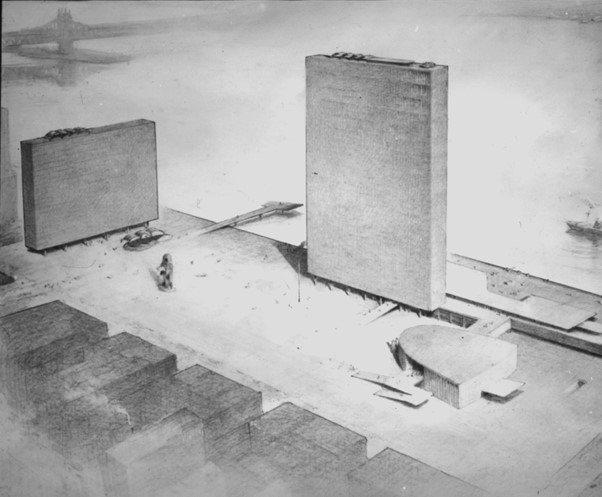
Who designed this scheme?
Oscar Niemeyer
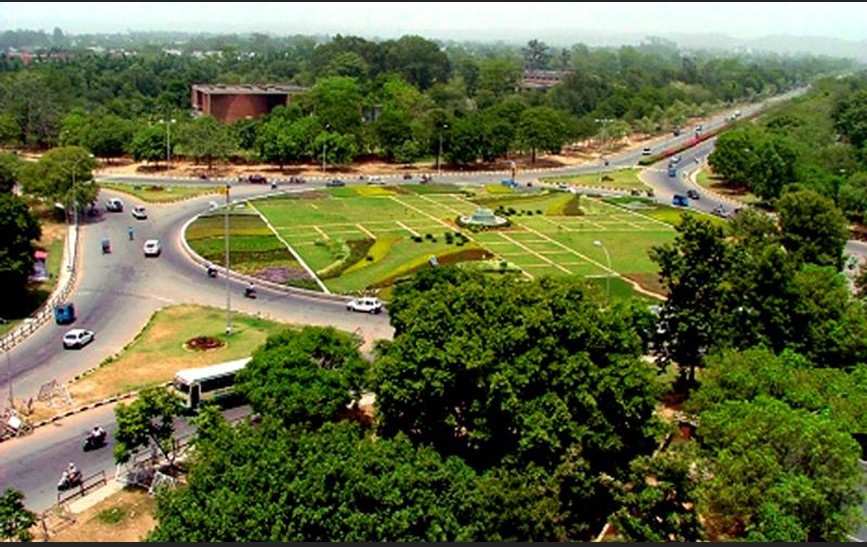
Identify this, where is it located, who made it, and what is the purpose of the design?
It’s a sector in Chandigarh, Punjab India. It was created as an urban planning development with the idea of conceiving space as something that comes through organic means of laying things out. It features a roundabout as its most notable feature. It was designed by Le Corbusier.
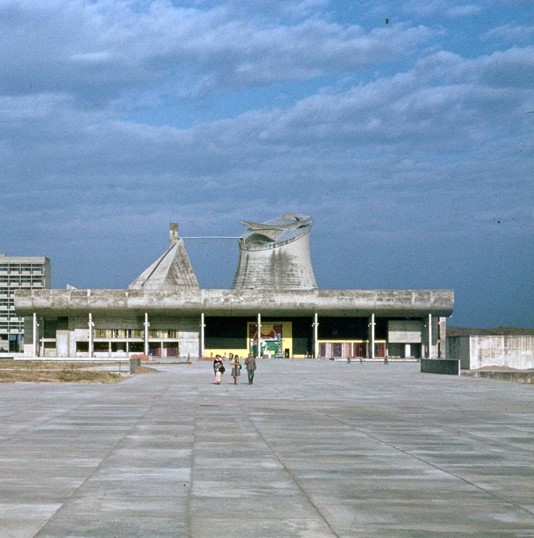
Identify this, where is it located, who made it, and what is the purpose of the design?
This is the General Assembly/Congress building in Chandigarh, India, designed by Le Corbusier. The acoustic panels' “painterly strokes” identify it as his work.
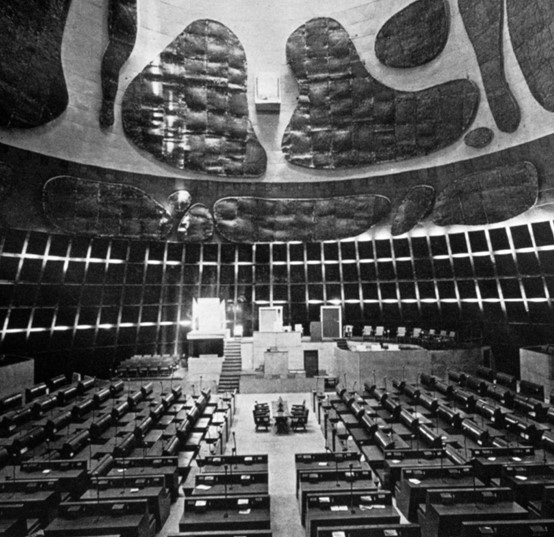
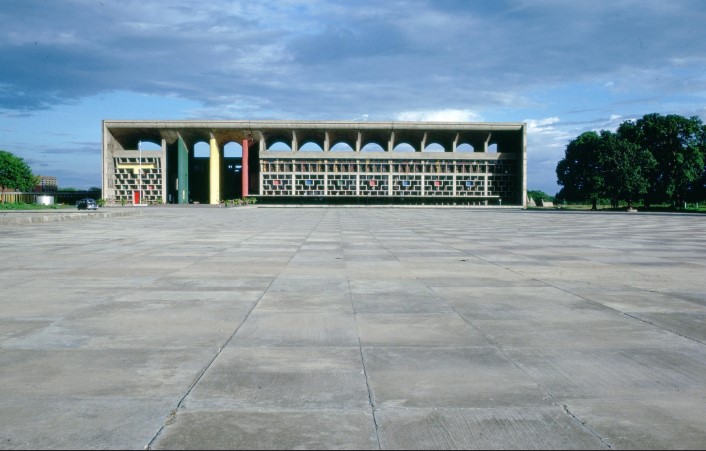
Identify this, where is it located, who made it, and what is the purpose of the design?
This is the Supreme Court building in Chandigarh, India, designed by Le Corbusier. It serves as the checks and balances to the general assembly building. The water in front of the building is symbolic and represents the reflection of truth by the court system.
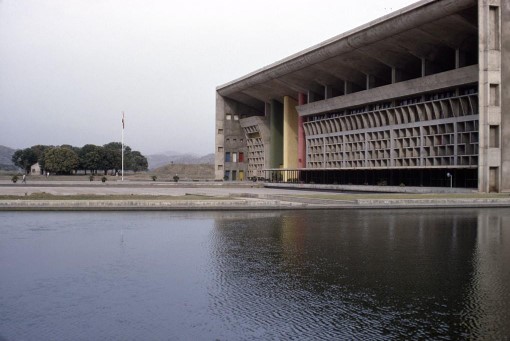
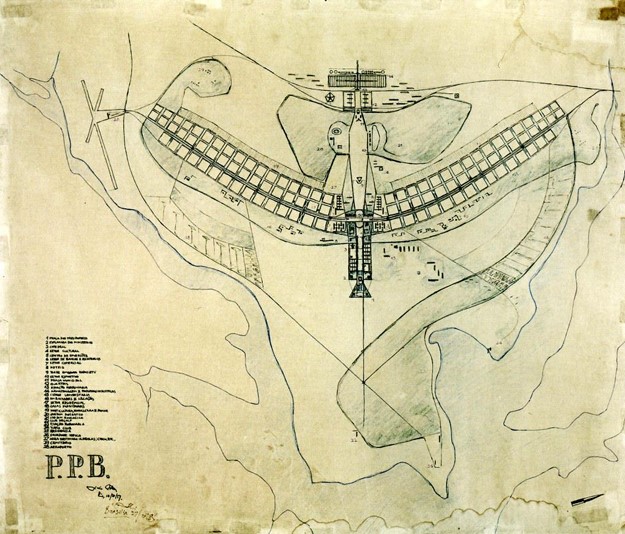
What is this a diagram of, and who made it?
This is Oscar Niemeyer’s Brasilia.
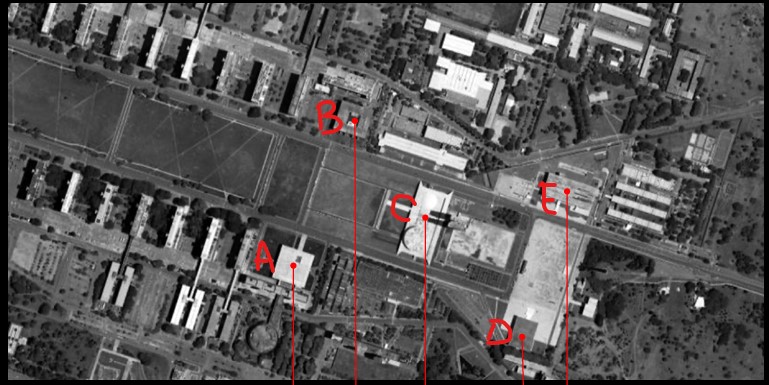
This is a map of Brasilia. What’s A?
The Ministry of Foreign Affairs.
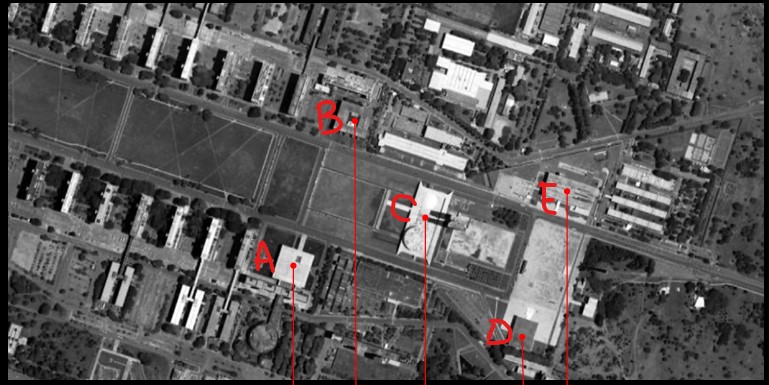
This is a map of Brasilia. What’s B?
The Ministry of Justice.
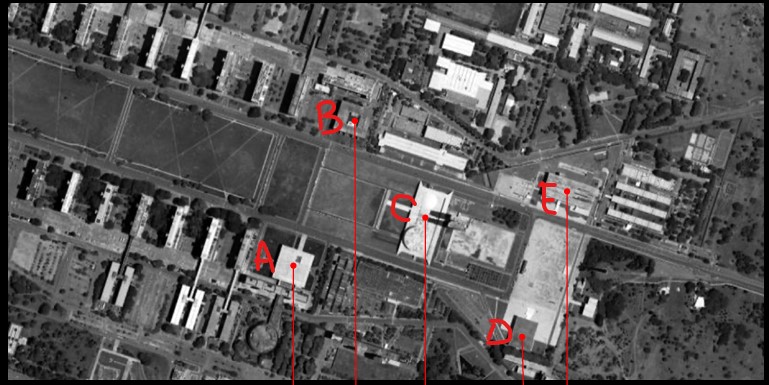
This is a map of Brasilia. What’s C?
The National Congress. The building is in the back so it’s not hierarchical, but instead, it blends in with the landscape and reveals the modest nature of governing.
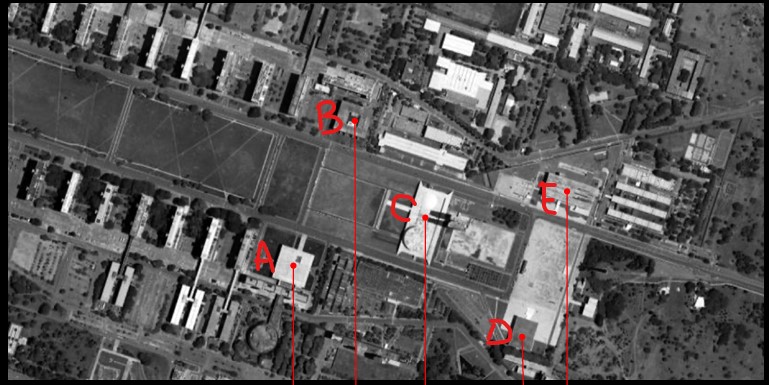
This is a map of Brasilia. What’s D?
The Supreme Court.
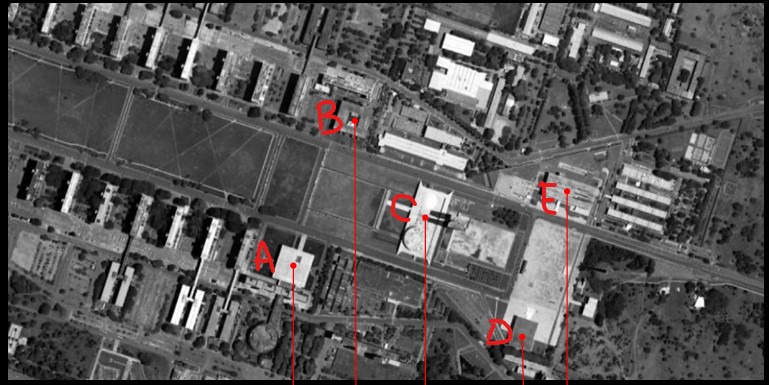
This is a map of Brasilia. What’s E?
The Presidential Offices.
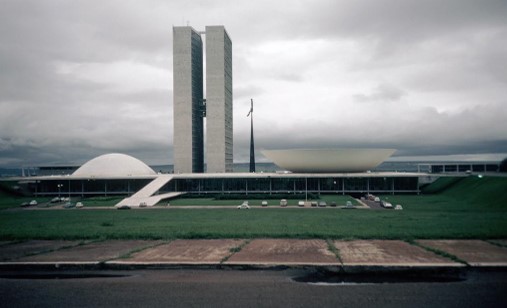
What buildings does this image depict, and what is their relationship?
It’s similar to the UN HQ. Pictured in the tall, overarching buildings is the House of Representatives and the Senate, with the smaller building in the back being the Dept. of Justice. Important things to mention are the hierarchy (Congress towers over the DOJ, but the DOJ is always there in the back), and the modern nature of the structure (representing a move towards a modernist future).
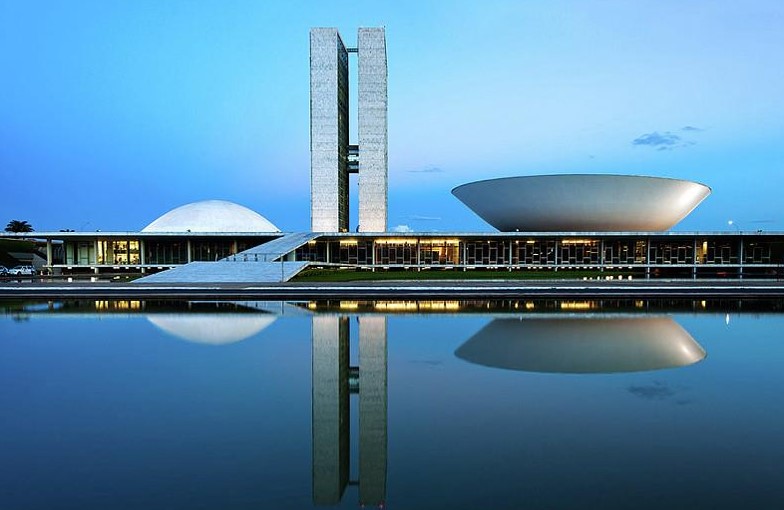
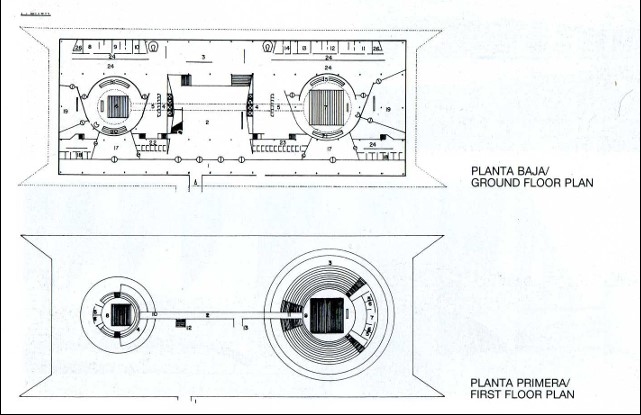
What structure is this?
This is the Ministry of Justice in Brasilia. The little fountains on the building’s facade are representative of the legal system and how they do not deliver brute justice but instead put themselves in an “offering position” in a gentle way; just like the water.
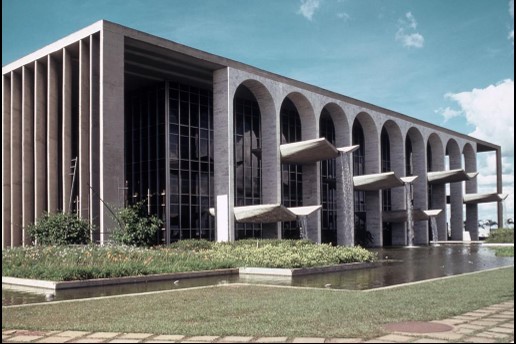
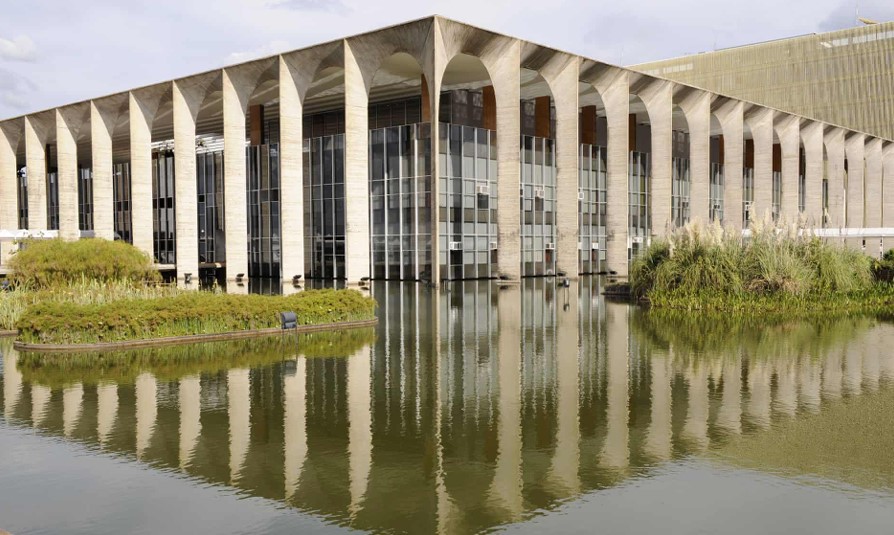
What structure is this?
This is the Department of Foreign Affairs in Brasilia. It features vaulted arches and rectangular shapes achieved by formwork. It also features a portico with water, representing the transparency from Brazil towards foreign nations.
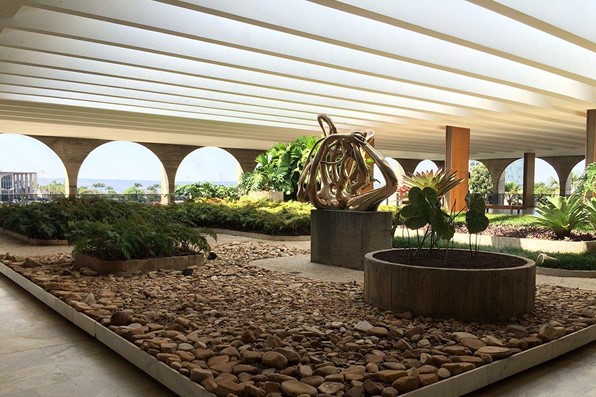
Where is this located?
It is the little garden under the roof of the Department of Foreign Affairs in Brasilia. “How do I identify this so I understand it for its qualities?”
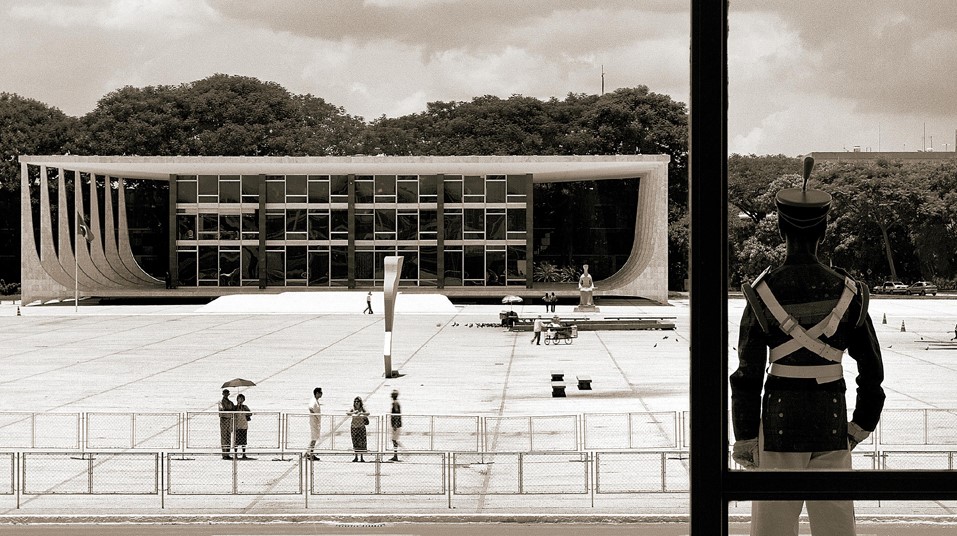
What building is this, and what are its identifiable features?
This is the Presidential Office in Brasilia, identifiable by its pilotis and ramp.
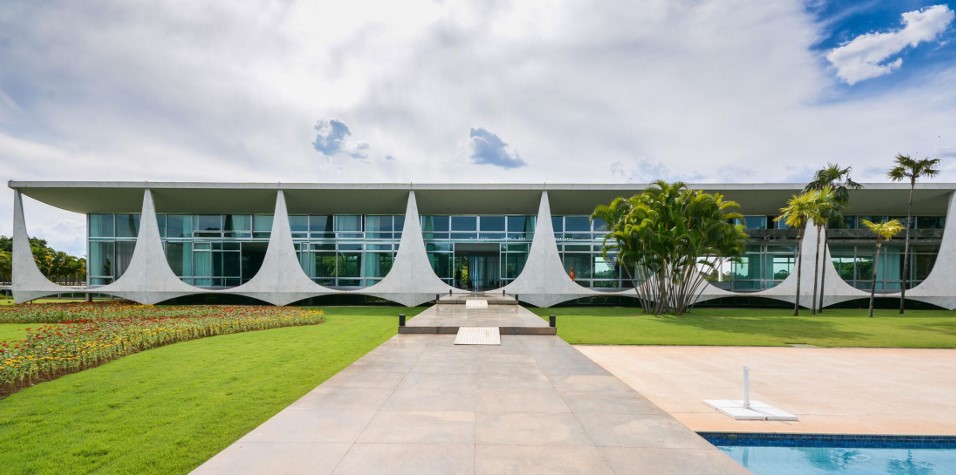
What building is this?
This is the Presidential Residence in Brasilia, featuring an inverted arch and frontal-turned pilotis.
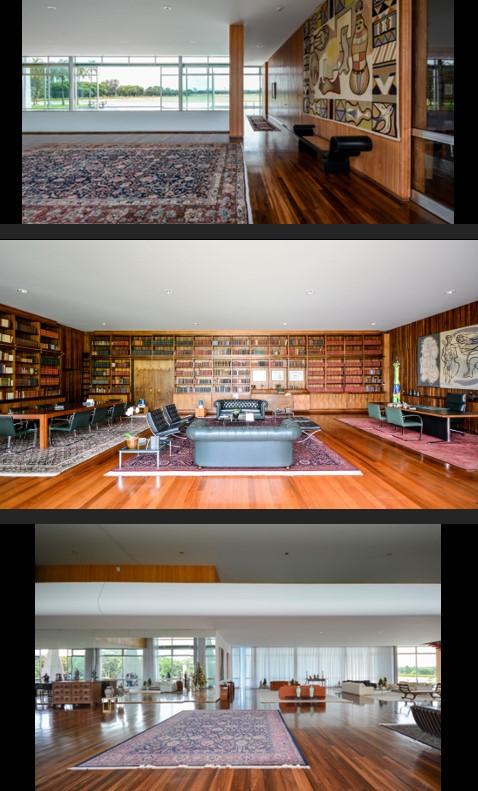
“I didn’t design the layout of Brasilia. I just did its architecture. And it is a place where the buildings count for a lot. The city is flat. The horizon stretches away endlessly.” who said this?
Oscar Niemeyer
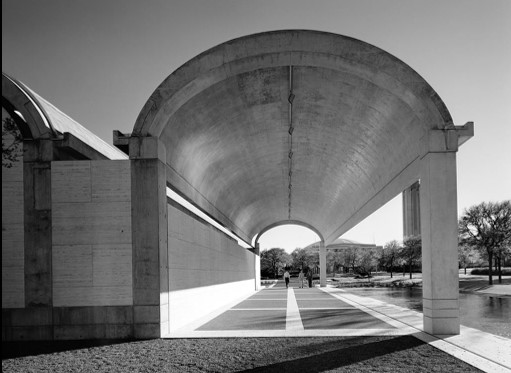
What structure is this? Who designed it?
This is Louis Khan’s Kimble Museum in Fort Worth, Texas. its features are rectangular space, a springing line, and cast-in place concrete.
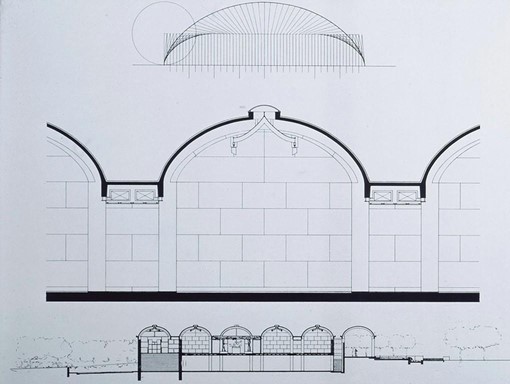
What kind of vault is this? Who made it?
A cycloid vault created by Louis Khan.
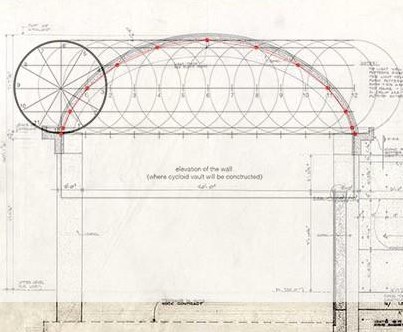
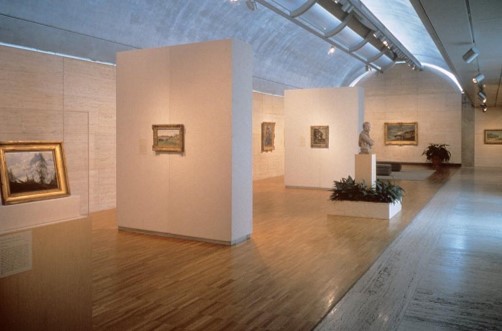
What are the three fundamental materials in this structure (Louis Khan’s Kimble Museum)?
Travertine, wood, concrete and (bonus) light.
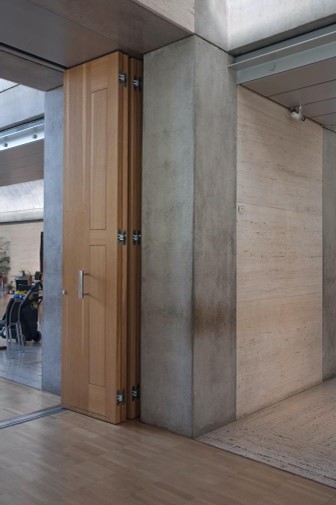
What is the condition between these vaults and pocket doors?
They hold the vault above, but also hold the pocket door with pilotis and pilasters between.
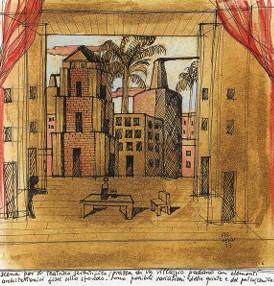
“In architecture every window is the window both of the artist and of anybody at all, the window children write about in letters. Tell me what do you see from your window.” Who said this?
Aldo Rossi in ‘Things Change’.
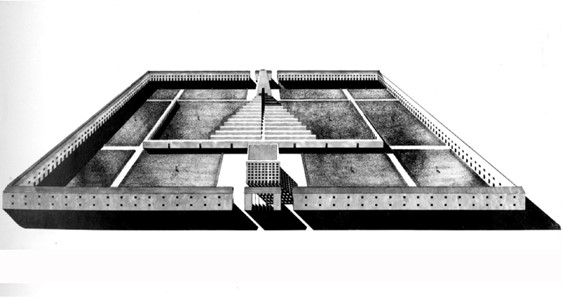
What structure is this? What are its identifiable features?
This is the Cemetery of Can Cataldo, it was a competition entry designed by Aldo Rossi.
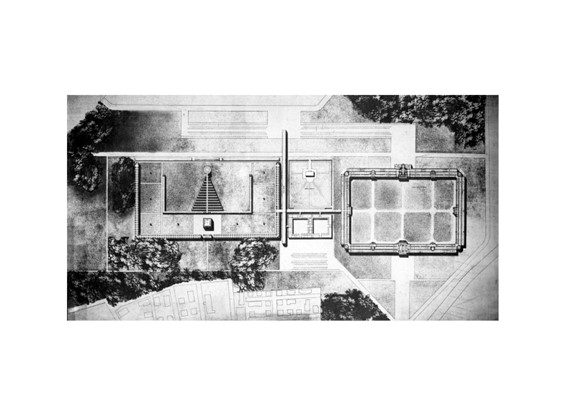
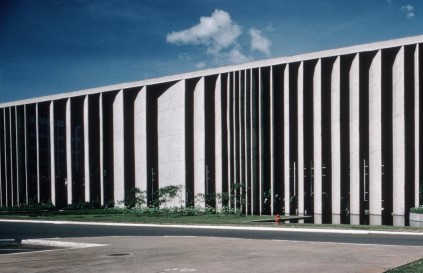
What structure is this? Where is it? What are its identifiable features?
This is the Ministry of Justice in Brasilia. It features pilotis turning into thin walls to create areas of shadow and become elements of producing shadow as a result of light.
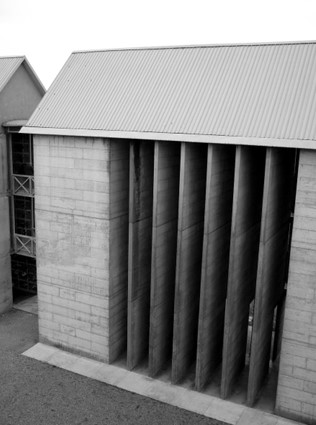
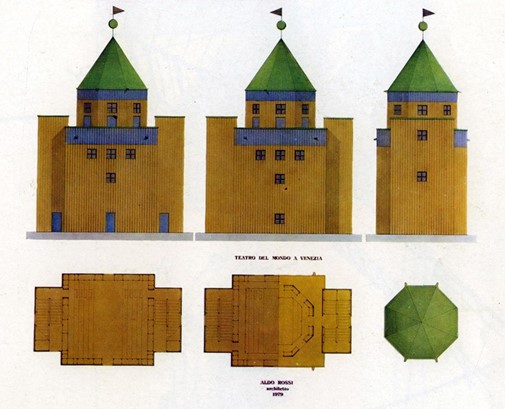
What structure is this? Who designed it?
This is Aldo Rossi’s Il Teatro del Mondo (or world theatre) located in Venezia.
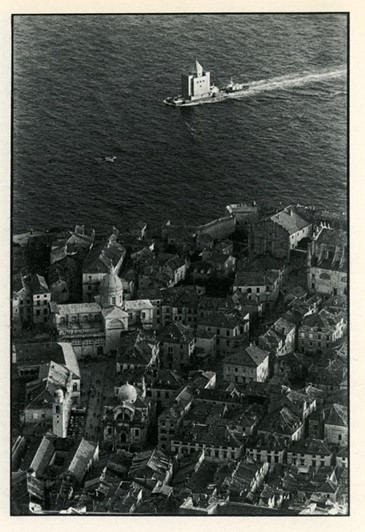
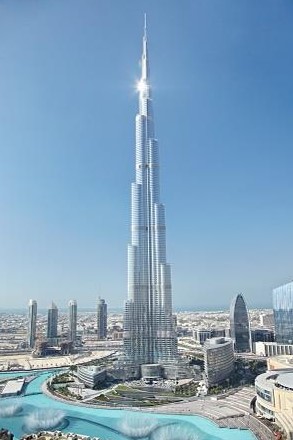
What structure is this? What’s its significance?
It's the Burj Khalifa in Dubai. It shows that things are in a hyper speed mode of development. It’s a part of the speedy change in Dubai’s skyline.